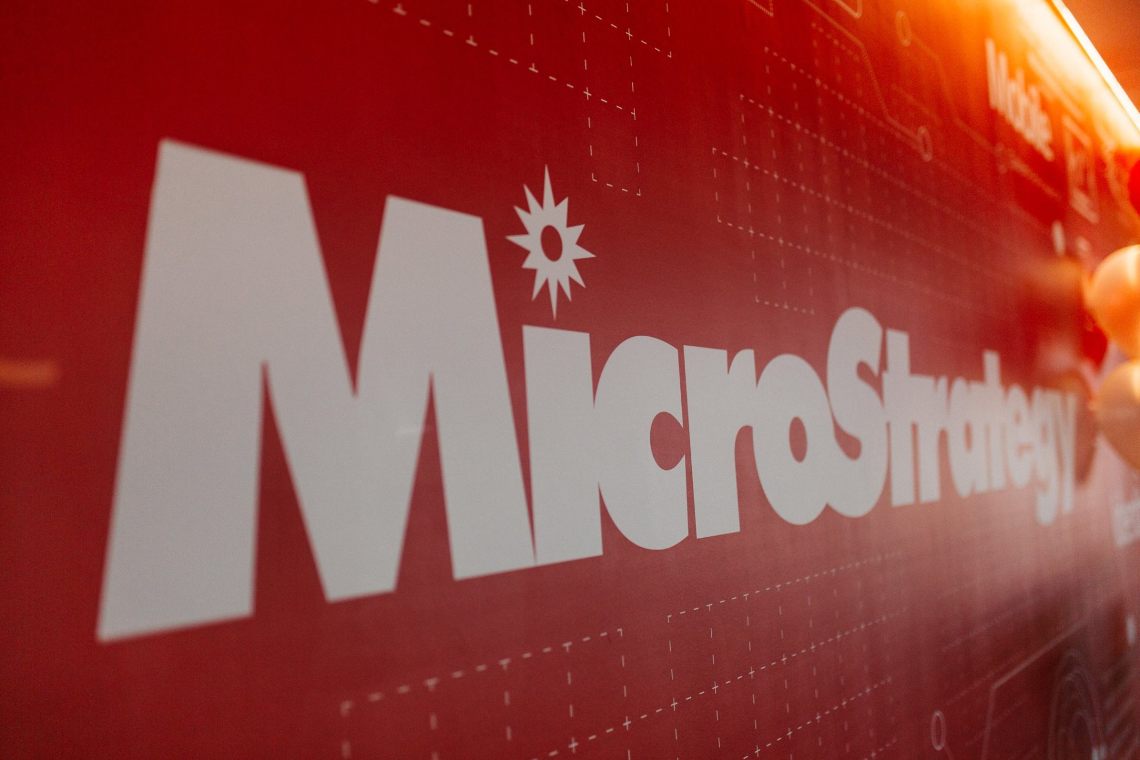MicroStrategy Slides 46% From November Peak as Bitcoin Funding Strategy Draws Skepticism
01.01.2025 9:00 1 min. read Kosta Gushterov
MicroStrategy’s stock has dropped below $300, a 46% decline from its November peak, amid mounting questions over the company’s plan to raise billions for additional Bitcoin acquisitions.
While MSTR is still up 342% this year – buoyed by Bitcoin’s 121% rise – it has steadily fallen from an intraday high of $543 on November 21.
Despite recently adding 2,138 BTC to its treasury for a total of 446,400 BTC and securing a spot in the Nasdaq 100, MicroStrategy faces uncertainty around its “21/21” strategy, which involves raising $42 billion through a mix of equity and fixed-income offerings.
The firm also proposed expanding its Class A common shares by $10 billion and preferred shares by $1 billion, sparking concerns over potential shareholder dilution.
READ MORE:

Top 10 Biggest Crypto Stories of 2024
Some analysts point out that if MicroStrategy continues its aggressive BTC purchases, existing shareholders risk being diluted. Conversely, any hesitation could undermine the company’s identity, which is heavily tied to Bitcoin’s performance – particularly at a time when Bitcoin’s rally may be cooling.
-
1
Here is Why the Fed May Cut Rates Earlier Than Expected, According to Goldman Sachs
08.07.2025 15:00 2 min. read -
2
What Brian Armstrong’s New Stats Reveal About Institutional Crypto Growth
29.06.2025 15:00 2 min. read -
3
Vitalik Buterin Warns Digital ID Projects Could End Pseudonymity
29.06.2025 9:00 2 min. read -
4
Donald Trump Signs “One Big Beautiful Bill”: How It Can Reshape the Crypto Market
05.07.2025 9:56 2 min. read -
5
Market Odds of a U.S. Recession in 2025 Drop in Half Since May
05.07.2025 18:30 2 min. read
BitGo Files Confidentially for IPO With SEC
BitGo Holdings, Inc. has taken a key step toward becoming a publicly traded company by confidentially submitting a draft registration statement on Form S-1 to the U.S. Securities and Exchange Commission (SEC).
Crypto Greed Index Stays Elevated for 9 Days — What it Signals Next?
The crypto market continues to flash bullish signals, with the CMC Fear & Greed Index holding at 67 despite a minor pullback from yesterday.
U.S. Public Pension Giant Boosts Palantir and Strategy Holdings in Q2
According to a report by Barron’s, the Ohio Public Employees Retirement System (OPERS) made notable adjustments to its portfolio in Q2 2025, significantly increasing exposure to Palantir and Strategy while cutting back on Lyft.
Key Crypto Events to Watch in the Next Months
As crypto markets gain momentum heading into the second half of 2025, a series of pivotal regulatory and macroeconomic events are poised to shape sentiment, liquidity, and price action across the space.
-
1
Here is Why the Fed May Cut Rates Earlier Than Expected, According to Goldman Sachs
08.07.2025 15:00 2 min. read -
2
What Brian Armstrong’s New Stats Reveal About Institutional Crypto Growth
29.06.2025 15:00 2 min. read -
3
Vitalik Buterin Warns Digital ID Projects Could End Pseudonymity
29.06.2025 9:00 2 min. read -
4
Donald Trump Signs “One Big Beautiful Bill”: How It Can Reshape the Crypto Market
05.07.2025 9:56 2 min. read -
5
Market Odds of a U.S. Recession in 2025 Drop in Half Since May
05.07.2025 18:30 2 min. read

